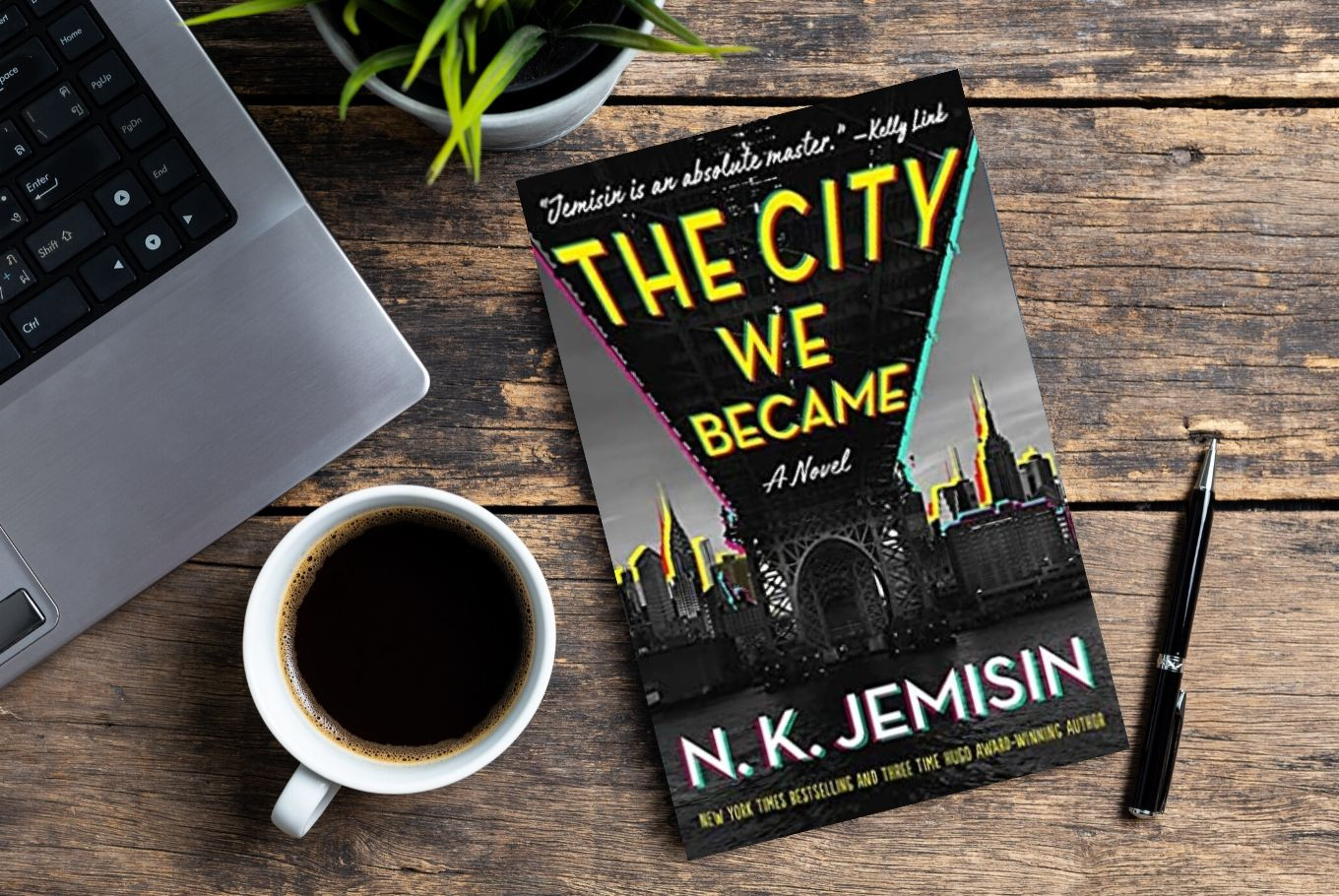Popular Reads
Top Results
Can't find what you're looking for?
View all search resultsPopular Reads
Top Results
Can't find what you're looking for?
View all search resultsIn 'The City We Became', New York is born
The City We Became is a promising start to a modern myth on an urban, contemporary being that dominates our lives and skylines.
Change text size
Gift Premium Articles
to Anyone
What makes a city a city?
In The City We Became, NK Jemisin presents an answer to this that encompasses the usual: its people, culture and tradition. Yet, it also explores the unusual; the sheer force of being that punches through the multiverse.
The book starts with the birth of New York City and its anthropomorphic personification as an avatar. As a city is born, an opposing force emerges known as the Enemy, which will try to stop its birth due to the threat that the city presents to lives elsewhere.
“Cities are monstrous,” says the Enemy. “Filthy. Too many people, too many cars. Criminals and perverts everywhere. And they’re bad for the environment, too."
And yet, humans are now mostly city-dwellers. According to the United Nations, 68 percent of the human population will live in cities by 2050, hence the need for cities to be built and, to some extent, to be born and become alive.
The City We Became is the antithesis to countless books that have a seemingly similar message: that humans will be better off if we go back to the nature; that with no internet, there will be a better connection. No matter how dull or chaotic cities can be, they are where lives actually take place for most of us.
New York City in the book is represented not by one avatar but five – one for each borough. The boroughs are personified either through someone who is born and raised there, or through a newcomer who arrives there, ready to start a new life in the city. Beyond the surface, there is one important feature: each avatar gets its strength from each borough's specific features, be them good or bad.
Take Manhattan, for instance. Its avatar, Manny, is a no-nonsense newcomer who strives to build a better life in the city. Cold and ruthless while needed, the avatar of Manhattan, New York’s financial district, gets its power from the one thing that makes Manhattan stand out: money.
Read also: 5 ways to read free books online
The avatar of Brooklyn is a black woman, born and raised in the borough. She is a politician and, yet, while battling the Enemy, she employs sick beats and rhymes and the music from the constant noise in the city that never sleeps.
The avatar of Staten Island, geographically detached from the rest of the city, is embodied in a slightly racist homebody who is aptly named Aislyn.
With its urban and present-day setting, The City We Became is a seeming departure from The Broken Earth trilogy, which won Jemisin her three consecutive Hugo awards, and yet, the two could not be more similar: the scale of the story is vast, and the characters are deeply grounded and interlinked to the geographic and spatial features in which they live.
Jemisin's lyrical voice lends the book its biggest strength, as it is the first of a planned trilogy and hence carries the burden of making an explosive and engaging reading experience worthy of the reader's time and emotional investment. Some parts of the book, especially when explaining the technicalities of the universe and cities as a living being, might have been too convoluted if not for Jemisin's writing.
The book is a promising start to a modern myth on an urban, contemporary being that dominates our lives and skylines.
New York City is born, and from now on, it can only grow and grow and grow. The story has just begun. (kes)











